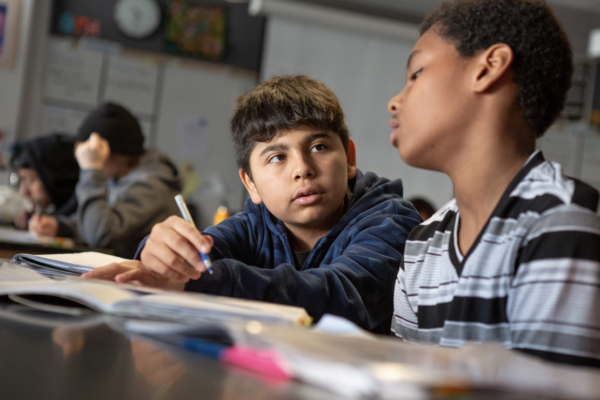The debate over school discipline often devolves into whether stricter rules create more orderly school environments or produce dire consequences for students. A new report looking at principals’ disciplinary styles suggests that both outcomes could be true.
Researchers Lucy C. Sorensen and Shawn D. Bushway of the University at Albany, SUNY, and Elizabeth J. Gifford of Duke University matched academic records for North Carolina middle schoolers from 2008 and 2016 with their graduation records, as well as juvenile justice and adult conviction records.
In middle schools where the principals issued more suspensions and expulsions, students were less likely to misbehave than those in other schools, based on reduced reports of minor infractions. But students with the stricter principals were also less likely to finish high school and more likely to referred to the juvenile justice systems than their counterparts elsewhere. These effects applied to all students at these schools, not just those receiving punishment.
Among student who commit nonviolent offenses, such as disruptive behavior and insubordination, the harsher discipline led to increased absences, decreased test score performance and a higher likelihood that they would be retained in grade or drop out of high school. The discipline meted out by stricter principals tended to exacerbate performance gaps among Black and White students.
The study suggests that principals should evaluate whether the ill effects of strict discipline outweigh the benefits in their schools.
-Gunjan Maheshwari
